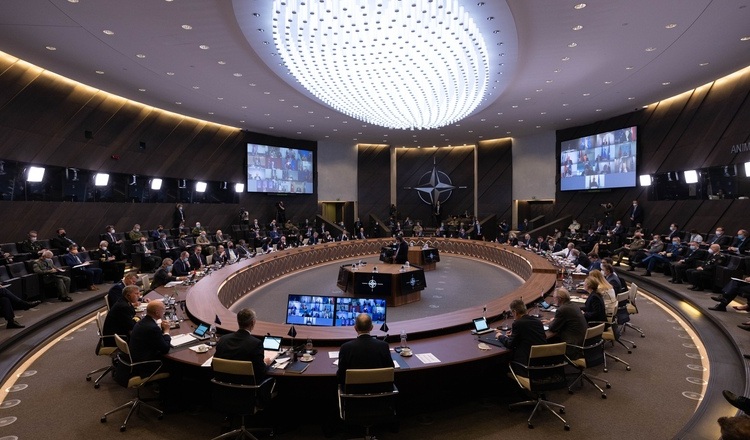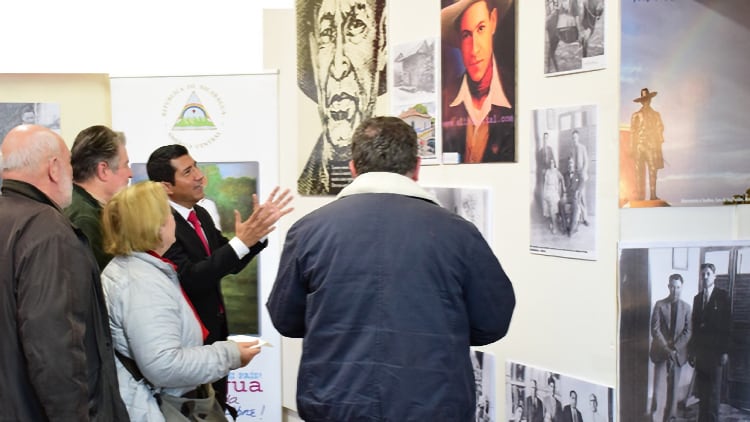The Diplomat
NATO heads of state and government yesterday approved the deployment of Rapid Response Forces on its eastern flank with the aim of increasing defense in the wake of the Russian invasion of Ukraine.
This was decided yesterday by NATO leaders during a virtual meeting attended by the Spanish Prime Minister, Pedro Sánchez, and the Minister of Defense, Margarita Robles. At the end of the meeting, the Alliance leaders approved a joint statement in which they condemned “in the strongest terms the full-scale invasion of Ukraine by Russia, with the support of Belarus” and called on Moscow to “immediately cease its military assault, to withdraw all its forces from Ukraine and to abandon the path of aggression it has chosen.”
“We will continue to take all necessary measures and decisions to ensure the security and defense of all Allies,” the allies warned. “We have deployed defensive ground and air forces in the eastern part of the Alliance, and maritime assets throughout the NATO area,” they announced. We have also “activated NATO defense plans to prepare to respond to a range of contingencies and secure NATO territory, including by drawing on our response forces,” they added. “We are now conducting significant additional defensive deployments of forces in the eastern part of the Alliance and will make all necessary deployments to ensure strong and credible deterrence and defense throughout the Alliance, now and in the future. Our measures are and remain pre-emptive, proportionate and non-escalatory,” they concluded.
These forces will be deployed by land, sea and air in order to respond to “any contingency,” NATO Secretary General Jens Stoltenberg announced at the end of the virtual meeting. The Rapid Response Forces, composed of 40,000 troops with the capacity to deploy to any scenario within five days and for a maximum period of 30 days, include the international brigades of the Very High Readiness Joint Task Force, battalions of thousands of troops supported by air, naval and special operations forces with the capacity to deploy urgently in the event of military crises.
Margarita Robles
After the virtual meeting, Margarita Robles expressed, in a statement without questions at the Moncloa Palace, Spain’s commitment “to the European Union, to NATO and to the values of peace that they represent” and the “resounding condemnation” of the offensive launched by Vladimir Putin’s regime in Ukraine. He also recalled that Ukraine does not belong to NATO and, therefore, there will be no presence of NATO troops, but warned that any aggression against an allied country will receive the “consequent immediate response”. According to Robles, Russia is facing an international community “united, strong and that is not going to accept any kind of threats neither to Ukraine nor to any of the other countries”. Unity “is the best strength we can show in democratic societies in Europe and also in the United States and Canada,” she added.
In any case, the minister did not announce the sending of more capabilities or new troops by Spain and recalled that our country has maintained its commitment for years with the deterrence missions of the Alliance. In declarations to TVE, Robles assured yesterday that any deployment of troops by Spain would never have an “offensive character”, but “stabilizing and defensive”.
Spain currently has more than 600 military and battle tanks, fighters and Navy ships in the framework of the Alliance’s missions in Eastern Europe. Specifically, the Air Force has a contingent of four Eurofighter combat aircraft and 130 troops in Bulgaria on an air police mission against Russian incursions. Likewise, Spain has 350 troops and Leonardo and Pizarro battle tanks in Latvia in a NATO border deterrence mission in which it has been participating since 2017 and the Navy has three ships integrated in the NATO Mediterranean and Black Sea groupings, the frigate Blas de Lezo, the ship Meteoro and the minehunter Sella.
For his part, Pedro Sánchez stated via his Twitter account that “NATO countries condemn Russia’s unjustified attack that puts the security of Ukraine, Europe and global stability at risk.” “The Alliance and the EU are responding in a coordinated way, with unity and firmness and we support the Ukrainian people at this time,” he added.







